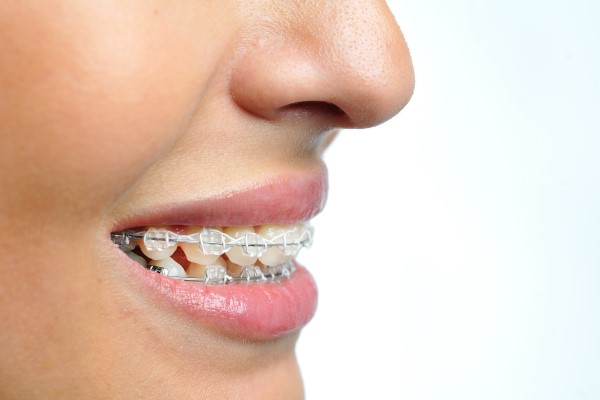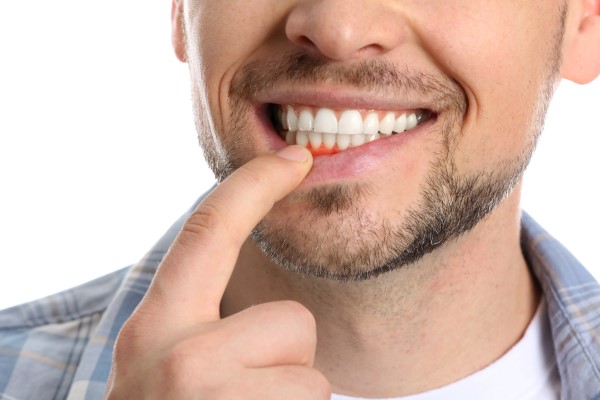Emergency Dentistry: Tooth Pain and Fever

A toothache occurs when one or more of your teeth have been damaged, and it might be a sign that emergency dentist is needed. Toothaches are sometimes accompanied by a fever, and that is often a sign of an infection in or around a tooth.
A dental infection is a serious health issue because the infection can spread to vital parts of the brain if left untreated. An infection in the brain can have life-threatening consequences. Emergency dentistry provides urgent care for such serious dental issues before things get out of hand. Common causes of a toothache that is accompanied by a fever include:
- Tooth decay
- Abscess
- Damaged restoration
- Fractured or broken tooth
- Worn-down teeth
- Infected gum tissues
Pain and fever are not the only symptoms associated with toothaches. Other symptoms that might occur as a result of a damaged tooth include inflammation around the affected tooth, headaches, a weird taste in the mouth and bad breath.
How emergency dentistry treats toothaches
Here are signs that mean it is time to get emergency dental care for your toothache, as well as how a dentist can resolve the issue.
1. Severe toothache that does not go away
A toothache that causes so much pain that a person cannot get their mind off it or sleep at night might be a sign of an exposed pulp chamber. It might also be a sign that a tooth has been infected, particularly if the pain is accompanied by a fever.
Dentists recommend coming in for emergency care when dealing with such toothaches. The problem can often be fixed by performing a root canal on the tooth and possibly covering it up with a crown. If the infection is close to spreading to other parts of the body, the dentist might recommend extracting it instead.
2. Pus pockets on the gums
Pus pockets forming on gum tissues might be a sign of an abscess. It often comes with a fever, and it is caused by bacteria in the mouth getting into the gums. The immune system tries to kill off the infection by sending antibodies to the area. The result is inflammation in the area and pus pockets forming on or around the tip of a tooth’s root.
A dentist might go about fixing an abscessed tooth by doing any of the following.
Draining the abscess: Dentists can treat abscesses by draining the pus pocket and applying medication to the area. The pus pocket formed by an abscess typically drains on its own when left untreated.
Antibiotics: Dentists can prescribe antibiotics to help fight off the infection. This is typically used in combination with other treatments.
Root canal: Root canal treatments are used when the soft tissues in the pulp chamber are infected. The dentist cleans out the area, applies medication and seals it.
Get emergency dental care
Dealing with a toothache and a fever? Our dentist can perform the emergency treatments you need. Call or visit our Pasadena clinic as soon as you can.
Request an appointment here: https://www.dentalcarepasadena.com or call Karrie Chu DDS Dental Care at (626) 472-2189 for an appointment in our Pasadena office.
Check out what others are saying about our dental services on Yelp: Emergency Dentist in Pasadena, CA.
Recent Posts
An avulsed tooth is a serious dental problem that should be addressed by an emergency dentist. Emergency dentists are great resources to make use of when something serious happens within the mouth, and an avulsed tooth is certainly such a situation.Want to know how an emergency dentist can save an avulsed tooth? Keep reading to…
Dentists are still able to offer emergency dentistry during COVID-19 to ensure patients get the treatment they need. One of the main reasons for a dental emergency is a missing tooth, which is why it is important for people to understand treatment options in emergency dentistry during the COVID-19 outbreak. There are different reasons why one…
Dental phobia is typically classified as a more severe form of dental anxiety. It leads many people to avoid visiting the dentist altogether, and those who do visit the dentist battle through fear and severe anxiety. The good news is that there are effective ways for a general dentist to help patients who struggle with…
General dentists can offer patients the advice and guidance they need to support a healthy mouth, including how to prevent cavities. Cavity prevention is essential in ensuring good oral health, which is why consulting with a general dentist on a regular basis is a good idea. One of the most common reasons why patients visit a…


